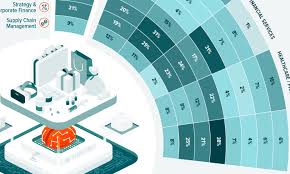AI Sales Agents Explained
If you were to ask a sales rep why they chose a job in sales, they’d probably tell you something like, “I love helping to people. I’m ambitious and goal-oriented, and no two days are ever the same.” The reality, however, is that a lot of time in sales isn’t spent selling. Recent data suggests that sales reps dedicate only 28% of their time to actual selling, with the rest swallowed up by administrative tasks and non-revenue-generating work. To ease this burden, sales teams are turning to AI sales agents, enabling them to focus more on building relationships and closing deals. Below, we explore the different types of AI sales agents and how businesses are using them to increase productivity, efficiency, and revenue. What is an AI sales agent? AI sales agents are autonomous applications that analyze and learn from sales and customer data to perform tasks with little or no human intervention. These agents can manage a wide range of activities, from top-of-funnel tasks like nurturing leads via email outreach, answering questions, booking meetings, and generating quotes to more integrated sales support like buyer roleplays and coaching. Unlike simple workflow automation, AI agents are capable of learning, enabling them to improve efficiency and act independently based on data and analysis. They often plug directly into existing CRMs, with pre-built capabilities or customizable configurations for specific business needs. Types of AI sales agents There are two primary types of AI sales agents: The ability to autonomously analyze data, create action plans, and execute them sets modern AI sales agents apart from traditional sales tools and bots. Key features of AI sales agents Benefits of AI sales agents Future trends for AI sales agents In the early days, AI in sales served primarily as a co-pilot — summarizing insights and assisting with tasks like forecasting. It often required significant human input and created siloed data challenges. Today, AI agents autonomously augment human teams, empowering them to focus on high-value tasks like building relationships. In the near future, AI sales agents are expected to handle increasingly complex workflows and multi-step processes across diverse channels. Potential advancements include: These developments promise to unlock new possibilities for efficiency, personalization, and customization in sales teams. AI sales agents pushing teams into a new era According to recent data, sales leaders are focusing on improving sales enablement, targeting new markets, and adopting new tools and technologies to drive growth. Challenges like scaling personalized interactions and hitting quotas are top of mind. AI sales agents directly address these needs, transforming sales organizations by enabling teams to offload repetitive work to autonomous systems while maintaining quality and personalization. Who uses AI sales agents? AI sales agents are used by sales teams to manage tasks such as lead qualification, follow-ups, meeting scheduling, and coaching. By handling repetitive activities, these agents free up reps to focus on relationship-building and closing deals, ultimately driving better outcomes for both teams and customers. Like Related Posts Salesforce OEM AppExchange Expanding its reach beyond CRM, Salesforce.com has launched a new service called AppExchange OEM Edition, aimed at non-CRM service providers. Read more The Salesforce Story In Marc Benioff’s own words How did salesforce.com grow from a start up in a rented apartment into the world’s Read more Salesforce Jigsaw Salesforce.com, a prominent figure in cloud computing, has finalized a deal to acquire Jigsaw, a wiki-style business contact database, for Read more Service Cloud with AI-Driven Intelligence Salesforce Enhances Service Cloud with AI-Driven Intelligence Engine Data science and analytics are rapidly becoming standard features in enterprise applications, Read more








